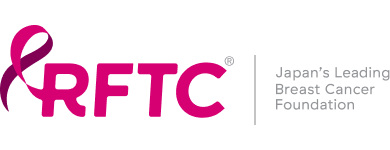
06 Apr Cancer motivated me to change my life
PiNK 2020 Spring Issue
Three people tell us about the changes they made after their breast cancer diagnosis, and how this helped them move forward.
I wanted to see the world
When I was diagnosed with invasive lobular breast cancer in July 2012, I was in the grip of fear and uncertainty that I imagine all people diagnosed with cancer experience.
At my local support centre I met a lovely woman who told me that, apart from her children, breast cancer was the best thing that happened to her. When I left the hospital that day, I felt the fog of despair lifting. I was determined to turn breast cancer into a positive experience for myself, too.
During my sick leave I realised how stressed I’d been at work, so I returned part time. I began thinking about travelling, and in 2014 when my daughter did an exchange at a university in Sydney, I went to visit her. I was enthralled and determined to go back.
In the meantime, stressful changes at work gave me the impetus to resign.
I spent time in Australia, New Zealand, Sri Lanka, Singapore and Kuala Lumpur. I travelled around Southeast Asia for a month. I had developed a lifestyle that suited me, so I saved money and flew back to Australia – twice!
I’m grateful to breast cancer. It has motivated me to change my life around completely. I am a happier, more confident, less anxious and less stressed person. If I were only to live for five more years, would I want to spend them worrying about the cancer returning and regretting things I’d not done? I want to see the world, feel a sense of achievement and have a head full of happy memories.
-Sarah W
I finally met my soulmate
I was diagnosed with triple negative breast cancer in December 2014, and finished active treatment in August 2015. In my relationship I was always the organised one. When I was diagnosed, I really wanted my partner to step up and help with simple things like housework and shopping. But he expected things to carry on as they were, and for me to mother him as normal.
Towards the end of treatment, he would say hurtful things, particularly around the lack of intimacy in our relationship when sometimes I felt so ill all I wanted to do was sleep. I felt very let down and that he only cared about his own needs, so I ended our relationship of eight years.
I am a big believer in things happening for a reason, and breast cancer certainly enabled me to do lots of thinking.
I am in a good place now, and after trying the dating scene for a few months I finally met my soulmate, Paul.
Positive things can come out of difficult situations, and life is for living. If you or your partner are finding things difficult, try to talk things through. It’s often easy to stick with the people we’re used to, but going through a life-altering experience can change that.
Ask what you want your new life to look like, and don’t waste time. Most importantly, do what makes you happy.
-Claire
I didn’t want to go back to my stressful job
In 2014 I was diagnosed with DCIS. The same year I was told I had a plastic anaemia, which made my treatment pretty complicated. I had to build myself back up physically and emotionally.
Before my diagnosis I worked in a job that was really stressful and a lot of responsibility. I didn’t want to go back to anything like that again. I had to come first in order to stay well and be a good mum to my six-year-old daughter.
With support from my boyfriend, I worked part time and freelance to transition back into work while allowing time to rest, spend time with my daughter and attend follow-up appointments. I was very keen to not be the ‘woman who had cancer’.
I work in the charity industry and always loved the face-to-face, frontline work, but now I’ve chosen to be office-based so I can enjoy my job while allowing for flexibility, family and the freedom to prioritise my health. I’m now happier to talk to people at work about my cancer and aplastic anaemia, even supporting others whose lives have been affected by cancer.
It’s important to remember that you have experienced serious trauma, and it’s difficult going back to life before that. This life is what’s important – the ‘new normal’. You can make changes if you want and you’re allowed to still be affected by cancer even five, 10 or 30 years after treatment – you don’t have to ‘get over it’.
Jobs are jobs, but the health and wellbeing of me and my family is my number one priority, now and for the future.
ー Sarah M











